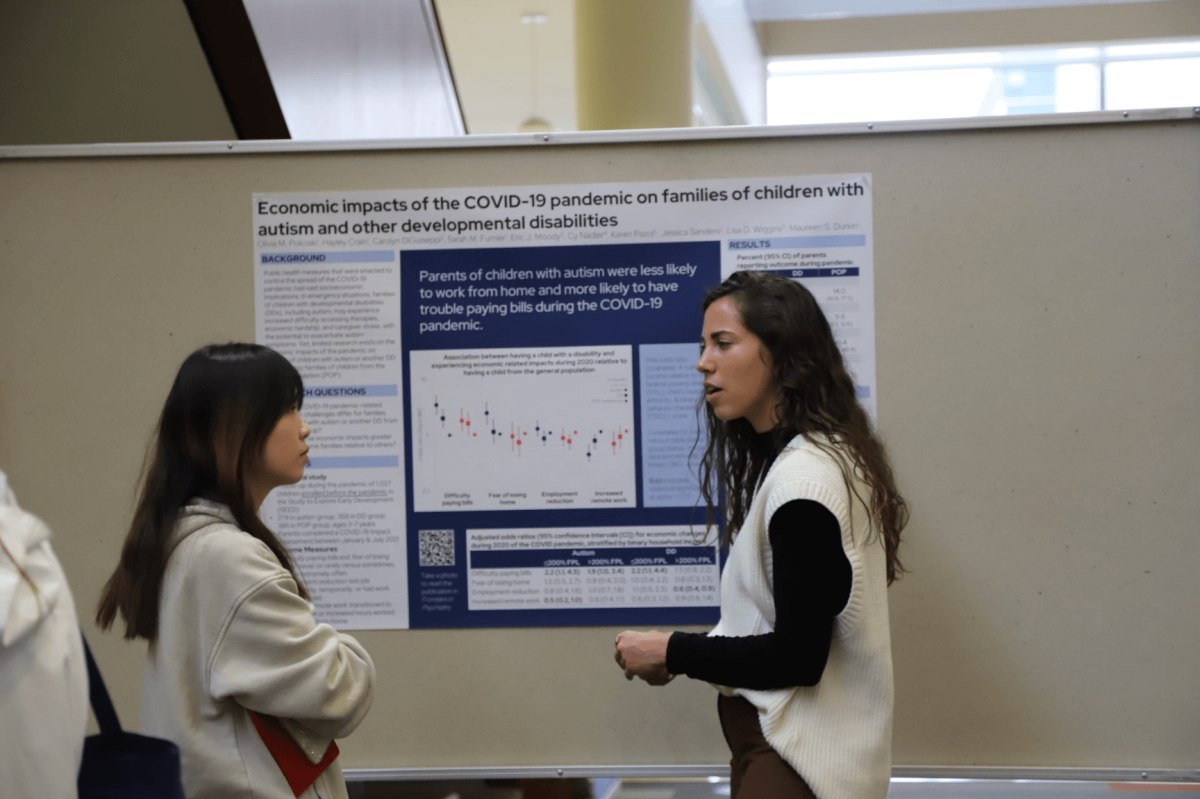A team of faculty and researchers across the country, including faculty at the University of Wisconsin, joined forces on a study aiming to uncover critical considerations for families of children with developmental disabilities during public health emergencies.
In a study published last month titled “Economic impacts of the COVID-19 pandemic on families of children with autism” researchers analyzed how families of children with developmental disabilities, including autism, faced significant economic disparities during the COVID-19 pandemic, using data from the Study to Explore Early Development, a case control study designed for young children with developmental disorders.
Lead author of the study and UW doctoral candidate Olivia Pokoski said after enrolling a group of eligible participants in SEED, the researchers catalyzed their research using the circumstances of the COVID-19 pandemic.
The researchers hypothesized families of children with autism and other developmental disorders would face increased disparities in parental employment, child care and household income, resulting in economic impacts, Pokoski said.
Researchers also hypothesized minorities and families of low socioeconomic status would face more economic impacts. After processing and analyzing the data, both hypotheses were proven true, Pokoski said.
Previous research reveals families of children with developmental disabilities are at higher risk for system-wide changes, but this study is one of the earliest to test these risks during the COVID-19 pandemic, pediatrician and UW professor Dr. Walton Schalick said. Above all, it takes a multidisciplinary approach, which effectively and accurately frames the family’s circumstances, Schalick said.
“People and families with disabilities have disproportionate needs beyond their typical circumstance and that doesn’t include socioeconomic status, race, gender, education or anything else,” Schalick said. “This study begins to tease out all of those factors.”
The study investigates the relationship between socioeconomic status and disability as two different analytic principles, while considering the subgroups within those populations, Schalick said.
According to the study, families of children with autism faced many setbacks during COVID-19. Based on their models, parents of children with autism had lower chances of returning to remote work during the pandemic in comparison to families of neurotypical children.
Varying economic disparities experienced by families with lower socioeconomic status and racial and ethnic minority groups were exacerbated during the public health emergency, the study stated.
There are many different scenarios where a family with developmental disabilities can experience disadvantages that hinder access to necessary care and resources, Schalick said. Factors like lower household incomes, socioeconomic disparities in minority families, work schedule changes and other factors increased adverse effects on families and their children, the study found.
“Because families and individuals with disabilities are even more dependent on support from other adults, staffing shortages have a profound domino effect,” Schalick said. “If it’s harder for the care worker to get to the house or they themselves get COVID-19 and can’t come, the ripple effects are profound.”
This nation-wide research reveals unique characteristics of each state, reflecting how some states responded more robustly to the questionnaires than others, according to the study. These are critical considerations because they reveal how to approach disparities across varying regions, Schalick said.
The study was supported by the Waisman Center, the center for UW’s research on developmental disabilities and neurodegenerative diseases. In partnership with UW Health, the Waisman Center provides many resources for children with autism or other developmental disabilities and conducts critical research, according to the Waisman Center website.
“The Waisman Center here on campus has been working really hard to fight for equitable research,” Pokoski said. “They do a lot of research for families of children with disabilities.”
Further research is needed to help existing and future studies draw a better understanding of how to support families in future public health emergencies, Pokoski said.
This research contributes toward support strategies that can improve the quality of life for both the child and their family members and catalyze change in the future.
“These types of studies are important because they can provide the scientific evidence to policymakers to support stronger policy efforts and potentially get more funding for families with disabilities in the future, especially in public health emergencies,” Pokoski said.
Aside from COVID-19, children with autism or other developmental disabilities have differential experiences in public health emergencies. These experiences are underrepresented in most research, Schalick said.
Pokoski and her team reveal an effective approach toward researching and understanding the root of the issue, without placing wrongful blame on family members or situational factors, Schalick said.
“So once you begin to think, ‘Here’s the state-of-the-art way to treat an issue,’ then you figure out how to get that idea into practice,” Schalick said.


